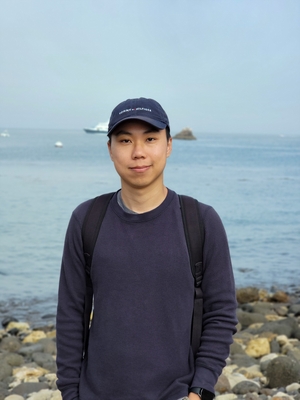Yiming Ha
Biography
Yiming Ha is a Ph.D. candidate in the Department of History at the University of California, Los Angeles. His current research is on military mobilization and state-building in China between the thirteenth and sixteenth centuries, focusing on how military institutions changed over time, how the state responded to these changes, tensions between the center and the localities, and the broader implications that the military had on the state. His project highlights in particular the role of the Mongol-Yuan in introducing an alternative form of military mobilization that radically transformed the Chinese state. He is also interested in military history, nomadic history, comparative Eurasian state-building, and the history of maritime interactions in early modern East Asia. He received his BA from UCLA and his MPhil from the Hong Kong University of Science and Technology. He is the founder and host of the Chinese History Podcast, a podcast that aims to make academic content related to Chinese history more accessible to the general public, and the book review editor of the academic journal Ming Studies.
Advanced to Candidacy
Subfield
Imperial China; Mongols; military history; state formation; state capacity; political history; fiscal history; nomadic history; East Asian maritime history.
Research
My project explores the introduction of a new method of military mobilization to China by the Mongol-Yuan, its subsequent adoption by the succeeding Ming dynasty, and the long-term consequences of this adoption. Unlike the Song, which utilized a marketized method of mobilization, the Mongol-Yuan, and the Ming employed a demonetized mode of military service that was premised upon the creation and maintenance of self-sufficient and self-replicating hereditary military households. This allowed the Yuan and Ming states to initially field large armies at very little cost and contributed greatly to their success. However, long-term socio-economic changes altered the nature of military warfare, eventually forcing both the Yuan and the Ming to adopt other forms of military mobilization. While scholars have often interpreted this transition as a sign of the collapse of traditional military institutions, my project argues that the state played a major role in facilitating and adapting to this transition. Operating within institutional and fiscal constraints, the Yuan and Ming states worked actively to implement policies that kept the military afloat and it was quite successful in responding to the challenges within the military.
Publications
- “Was There a Military Collapse in the Late Yuan? A Reconsideration of the Yuan Garrisons and Military Response to the Red Turban Rebellion in the 1350s.” Journal of Chinese Military History, online publication ahead of print (2023): 1-35.
- “Public Discourse and Private Sentiment: Ritual Controversies, Ritual Authority, and Political Succession in Ming and Chosŏn.” Ming Studies, 2022, no, 85-86 (2022): 4-29.
- “Emoluments, Institutions, and the Failure of Bureaucratic Reform in the Yuan Dynasty.” International Journal of Asian Studies 15, no.2 (2018): 153-93.
Awards & Grants
- Fulbright-Hays Doctoral Dissertation Research Abroad Grant
- Association for Asian Studies EIAC Grant
- Friends of the Princeton University Library Research Grant
- Sasakawa Japanese Language Study Fellowship
- Taiwan Studies Lectureship (TSL) Graduate Fellowship
- UCLA Graduate Summer Research Mentorship
- UCLA Graduate Dean’s Scholar Award


